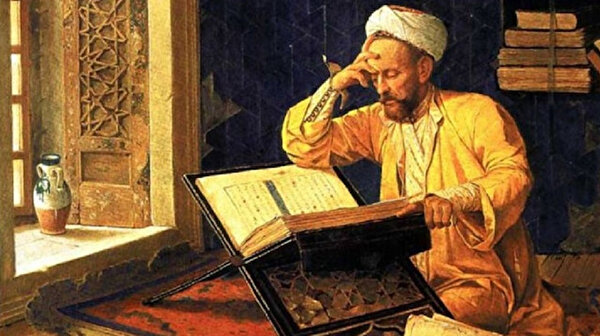Muslims across the world will commemorate the 908th death anniversary of renowned Islamic scholar Ghazali on Thursday. Abu Hamid Al-Ghazali, popularly

Muslims across the world will commemorate the 908th death anniversary of renowned Islamic scholar Ghazali on Thursday.
Abu Hamid Al-Ghazali, popularly known as Ghazali, was born in 1058 in eastern Iran and received his primary education there. Then, he headed to the cities of Jorjan and Nishapur to take lessons from al-Juvayni, a great scholar of his time and the imam of the two holy cities of Mecca and Medina.
After completing his education in Nishapur, he went to Baghdad upon the invitation of the famous vizier of Seljuk State, Nizam al-Mulk, who was a patron of science and literature.
Impressed by his wisdom and brilliance, the Seljuk vizier appointed him chief professor of Nezamiyah Colleges in Baghdad in 1091.
Nezamiyah Colleges were among the first well-organized institutions of higher education in the Muslim world.
Ghazali raised many renowned Islamic scholars such as Abu Mansur Mohammad, Mohammad bin Es’ad et-Tusi, Ebu’l-Hasan el-Belensi and Ebu Abdullah Cumert el-Huseyni. Ghazali was deeply respected by scientists, state heads and the people of his time.
After lecturing in Nezamiyah Colleges for more than three years, Ghazali left Baghdad and moved to Damascus.
In Damascus, he dedicated himself to write his greatest work Ihya’u Ulmu’id-Din (The Revival of the Religious Sciences). The book explains the doctrines and practices of Islam and aims to show how these two pillars of Islam can be the basis of profound devotional life. He moved to Jerusalem and wrote El- Maksad ul-Esma which is the explanation of Allah’s 99 names.
Ghazali made a pilgrimage to Mecca after staying in Jerusalem for a while and went back to Baghdad.
One of the most important achievements of Ghazali in science was refuting the assumption of European philosophers and scientists that the Earth was flat. He announced that the earth was spherical.
He also conducted many studies in the field of medicine and explained how the liver clears and detoxifies blood.
Ghazali moved to his hometown Tus and worked on his books.
He wrote Miskkat al-Envar (The Niche for Lights) which describes Sufism.
Many Muslims at that time considered Ghazali to be a Mujaddid, a renewer of faith who appears once in a century.
According to Egyptian scientist Abdurrahman Bedevi, Ghazali wrote 457 books, but only 75 works have survived.
Ghazali passed away in Tus on December 19th, 1111.